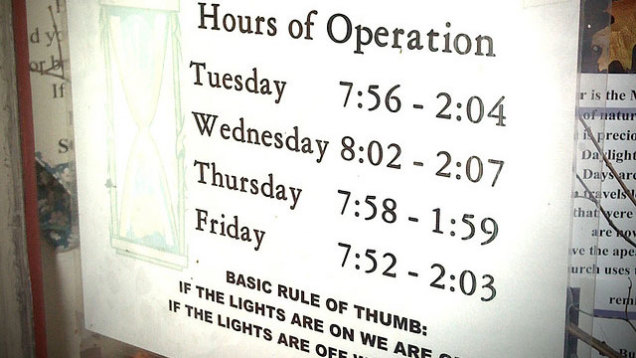The key to working effectively and efficiently is to harness your peak times. First, though, you need to figure out when they are.
Go With Your Gut
You probably have a “gut feeling” about when you’re at your best. I’ve known since my teens that I’m a “morning person”; when i was at school, I preferred to get up at 6am to finish off last-minute maths homework, rather than doing it late at night.
Alternatively, you might be someone who really struggles to get going in the morning – but who can focus for hours into the evening, often working (whether on paid or hobby projects) late into the evening.
If you have a sense of when you work best, go with it: you’re probably right.
Experiment – Work At Different Times
When you’re not sure when you’re at your best – or if you want to figure out a pattern of peaks and troughs – try experimenting. Work on a high-focus project first thing in the morning, before you even have breakfast. Try storming through your inbox backlog at 10pm. Get into the office an hour earlier than usual – or stay an hour later.
What feels most comfortable for you? When do you get the most work done, easily?
(If you’re still not sure when you’re at your most productive, check out Charlie Gilkey’s Productivity Heatmap and Daily Productivity Planner from Productive Flourishing.)
Now that you know when you’re at your best, you need to use that knowledge. This can be tricky if you’re in full time employment, working 8 – 4 or 9 -5 standard hours, but there are still some things you can do…
Try Flex-Time Working
Does your company offer flex-time? Perhaps you can negotiate with your manager to start work an hour earlier (if you’re a morning person), so that you can focus well and get through as much as possible in that quiet period before anyone arrives.
Alternatively, if you’re someone whose brain doesn’t kick into gear until mid-morning, ask if you can arrive later and stay longer in the evening.
Whatever you’re asking for, emphasize the benefits to your company: they’ll get you at your best!
Work From Home
Of course, in most industries, you’ll need to be in the office during core hours: your boss is unlikely to completely adopt the philosophy of a Results-Only Work Environment. So if you’re someone whose brain-power peaks between 4pm and 11pm, your best option might be to negotiate working from home.
Try presenting this to your boss on a trial basis – you’ll work from home one day a week, or one day a fortnight – and see what s/he says. Make sure you’re truly productive on your work-from-home days, and you might find that your boss is perfectly willing to let you have more time at home and less time in the office. You’ll save yourself a commute or two, and you’ll be able to get work done during your best hours.
(Tim Ferriss’ Four Hour Work Week has good advice on talking your boss into letting you work from home on a trial basis.)
Managing Your Time as a Freelancer
The ultimate chance to determine your own schedule, of course, comes when you’re a freelancer. Rather than working full-time for a single employer, you take on jobs for a number of different clients. So long as work’s delivered by the deadlines, your clients are unlikely to care whether you do the work at midday or midnight.
One caveat, though; if your clients and prospects are likely to want to phone you, you’ll need to make sure that at least part of your working day overlaps with traditional office hours. (You could always leave the answer phone on in the morning, then return calls in the afternoon, for example.)
If you’re a student, you’re in a similar situation: you can carry out your academic work when you’re best able to concentrate.
Your Own Projects
Whether you’re an employee, a freelancer, or a student, one good use of your peak hours is to work on personal projects. For example, if you’ve decided that 2009 is the year when you write a bestselling novel, you could work on it before work at seven am (if you’re a morning person) or late in the evening when the rest of your household is asleep (if you’re a night owl).
If your employment takes up your best hours, try working on your projects at the weekend. It might mean getting up earlier and skipping your usual lie-in, or switching part of your usual drinking session for an hour or two at home, but it could be all you need to make considerable progress towards a goal.
What’s your peak time of day? How do you make sure you can do your best work – whether that’s for an employer, for a client or on a personal project – during that time?
| Written on 3/02/2008 by Ali Hale. Ali runs Alpha Student, a blog packed with academic, financial and practical tips to help students get the most out of their time at university. | Photo Credit: jkivenen |
